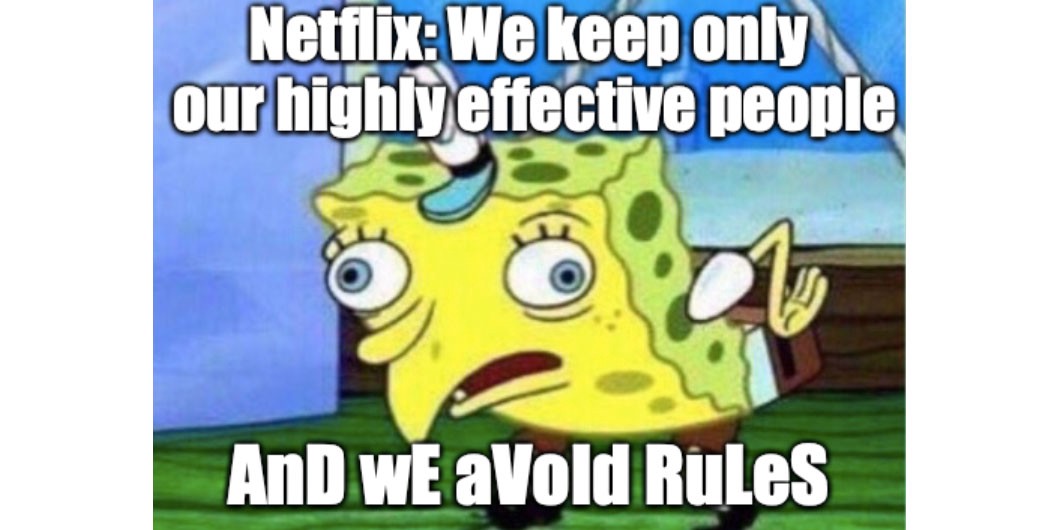Me mocking silly vision and mission statements, part 1
Some good, some bad and some really shitty onesSo how are the big players doing? Do their vision and mission stand up for some scrutiny? They are all successful so they must have been innovative at least at some point in time. In some cases that is in spite of lacking both vision and mission. But there are some exceptions that really shine.
I thought it would be fun to mock some of the big ones, I am sure they won’t mind. But first, a lengthy introduction!
Vision, mission and strategy defined
For the context of this article, here are my definitions:
- vision is the goal of the company
- mission is what the company does and why it matters
- strategy is how the company executes the mission to achieve the vision
The dividing line between mission and strategy is not set in stone so some overlap is unaviodable.
Not all are created equal
In the earlier article I defined three rules for vision and mission statements to have any value. They have to be:
- inspiring, make everyone feel excited about playing a part
- concrete, easy to understand, no BS
- actionable, it should give you guidance in practical decisions
A good start. After going through a good number of company statements there are some additional rules I’d like to add.
Rule four relates to innovation. If a company doesn’t innovate it will eventually die. If a company’s vision/mission statements just describes what the company is doing, where is the room for innovation and change?
So they have to be:
- dynamic, there must be space for change to allow creativity and innovation to happen.
If it feels like a challenge or a quest, even better!

Rule five is that a public vision/mission statements must make sense for all stakeholders. “Generate shareholder value” might be what Wall Street wants to hear but it is not a good incentive for employees. Without a shared vision/mission there cannot be an overarching strategy because of conflicts of interest between stakeholders. So they have to be:
- shared, the vision and mission must make sense for all stakeholders — customers, employees, management, shareholders — so that everyone works in the same direction.
The case against values (!)
Some bring up “company values” as equally important as vision and mission. Values are mostly meaningless. Either they are obvious, e.g. “be honest”, as if all companies that doesn’t explicitly state this as a value accepts dishonesty, or ambiguous and impossible to act on, e.g. “be bold”, what does that even mean?

Don’t get me wrong, values are super important and every company must have this sorted out. There are examples where stating company values are totally necessary to stay in business, we’ll come to that. But as drivers of creativity and innovation they are pretty useless.
Innovation without a vision and mission?
Companies are clearly innovating in spite of their crappy vision/mission statements. The big corporations have so many different arms that it might not even be possible to encompass all that in one statement. Maybe time for a breakup?
A related question is whether large corporations can be truly creative and innovative. They tend to solve the need for innovation by acquisitions of companies which most likely have great visions/missions. And that will work for a while.

I would argue that innovation without vision and mission will be hard to sustain in the long term, there is nothing to guide decisions and measure success. The energy just diffuses in all directions and innovation cannot gain any traction.
Have I convinced you of the value of a great vision and mission yet?
Cool, let’s get to the mocking!!

I have already mocked Facebook’s statement here so you probably can guess the rating. But it was fun, let’s do it again 🙂. Here is their original mission statement:
“Facebook’s mission is to give people the power to share and make the world more open and connected.”
which was later updated by Mr Zuck:
“People use Facebook to stay connected with friends and family, to discover what’s going on in the world, and to share and express what matters to them.”
It tells what they do from a user perspective. Kind of. It is super boring.
It is also dishonest. Facebook’s mission has little to do with connecting people. Its real mission is to deliver audiences for targeted ads. Ads are not a way to finance the business, it IS the business.
The unique selling point for Facebook is the precision in the targeting. I can guarantee that they are highly creative and innovative in that space, they just cannot brag about it since that would repel their users, see rule five above.
Facebook also have what they call core values, five of them to be exact:
Facebook’s mission is to give people the power to build community and bring the world closer together. As our company grows we have 5 strong values that guide the way we work and the decisions we make each day to help achieve our mission.
• be bold
• focus on impact
• move fast
• be open
• build social value
Neither inspiring, concrete, actionable, dynamic or shared. Values seldom are.
I could make fun of every single line, but who cares! My rating: ⭐️☆☆☆☆

Netflix
The vision for Netflix:
Becoming the best global entertainment distribution service. Licensing entertainment content around the world, creating markets that are accessible to film makers and helping content creators around the world to find a global audience.’
The first sentence is definitely a vision. The rest explains what they do but not why it matters. Are they better at licensing content than anyone else? Are they really creating markets that no one else does? And in which way are they helping content creators that is different than someone else? Doing the same thing as other streaming services is not a great mission.
It seems also to be directed towards shareholders, customers doesn’t care about these things so the shareholder and customer interests and incentives are not aligned, another minus.
Then for their employees they have this list of values and their famous company culture:
- Judgment
- Productivity
- Creativity
- Intelligence
- Honesty
- Communication
- Selflessness
- Reliability
- Passion
Read the whole thing. This is creepy shit if you ask me. Others seem to agree. It reads like a borderline personality disorder. Perks, demands, threatts. “We keep only our highly effective people”. Nice!
One thing is certain, this is as far from a culture of creativity and innovation as you can get. So ⭐️☆☆☆☆.

IBM
IBM is so big and diverse so defining a vision and mission for the company as a whole is a challenge. But the 319.000 employees took the challenge on a ValuesJam and came up with some stuff. If more is better, then the result must be totally amazing! Let’s have a look at the short version:
- “Dedication to every client’s success” — What does that mean? Do a good job? Doesn’t that go without saying?
- “Innovation that matters, for our company and for the world” — But apparently not for the customer? And in which way should it matter? I would assume IBM and the world must have vey different definitions of what matters.
- “Trust and personal responsibility in all relationships”. Don’t lie? And once again, do your job.
The IBM values doesn’t really mean anything. Decision by committee almost always generate mush. They are not concrete, inspiring, actionable, dynamic.
It is really a hopeless mission (!) to create vision and mission statements for a company that large so the utter failure was predictable: ⭐️☆☆☆☆

Google’s mission is:
”Google’s mission is to organize the world’s information and make it universally accessible and useful.”
Pretty clear and concise. It is obviously an ongoing mission that will require constant creativity and innovation. So well done there!
And then there is the company beliefs, collected in“Ten Things We Know To Be True”. Here is the first line in each.
1. Focus on the user and all else will follow.
2. It’s best to do one thing really, really well.
3. Fast is better than slow.
4. Democracy on the web works.
5. You don’t need to be at your desk to need an answer.
6. You can make money without doing evil.
7. There’s always more information out there.
8. The need for information crosses all borders.
9. You can be serious without a suit.
10. Great just isn’t good enough.
Read the whole thing, this is really great stuff! It is a mix of vision, mission, strategy and company values, but it works. Inspirational, concrete, actionable, dynamic.
However, it is a bit misleading. It only covers their core business, search. The rest of their pet projects don’t fit in that well. And it seems like “evil” has crept into the company soul, first Project Maven happened, then Project Dragonfly, and somewhere on the way they silently dropped their inofficial tag line “Don’t Be Evil”.
But the rating is not about good or evil, it is about the vision and mission, so cheers to the first ⭐️⭐️⭐️⭐️⭐️!

Microsoft
Here is a clear one star mission statement:
“To enable people and businesses throughout the world to realize their full potential.”
Is it a self help program? Let’s figure out:
”As a company, and as individuals, we value integrity, honesty, openness, personal excellence, constructive self-criticism, continual self-improvement, and mutual respect. We are committed to our customers and partners and have a passion for technology. We take on big challenges and pride ourselves on seeing them through. We hold ourselves accountable to our customers, shareholders, partners, and employees by honoring our commitments, providing results, and striving for the highest quality.”
Every word is either stating the obvious or totally open for interpretations. That is a true achievement that I reward with: ⭐️☆☆☆☆
OT here is my favorite example of their passion for technology:
Please note that it is Microsoft Research that have created this masterpiece.

Amazon
A combined vision and mission:
“To be Earth’s most customer-centric company, where customers can find and discover anything they might want to buy online, and endeavors to offer its customers the lowest possible prices.”
Ok, this requires a checklist:
- inspirational: for customers and shareholders, yes, but for employees?
- concrete: hell yeah!
- actionable: on higher levels of management maybe?
- dynamic: definitely!
- shared: doesn’t seem so
Amazon doesn’t really have to innovate, they have a repeatable formula and their size is their value. Only a gargantuan recession could stop their path to become the highest valued company on Earth and just keep growing.
Why do I have a bad feeling about that?




